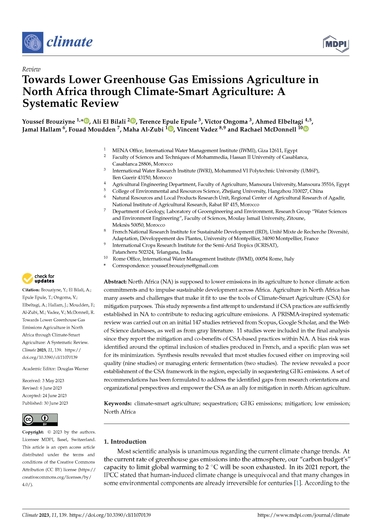Towards lower greenhouse gas emissions agriculture in North Africa through climate-smart agriculture: a systematic review
Abstract
North Africa (NA) is supposed to lower emissions in its agriculture to honor climate action commitments and to impulse sustainable development across Africa. Agriculture in North Africa has many assets and challenges that make it fit to use the tools of Climate-Smart Agriculture (CSA) for mitigation purposes. This study represents a first attempt to understand if CSA practices are sufficiently established in NA to contribute to reducing agriculture emissions. A PRISMA-inspired systematic review was carried out on an initial 147 studies retrieved from Scopus, Google Scholar, and the Web of Science databases, as well as from gray literature. 11 studies were included in the final analysis since they report the mitigation and co-benefits of CSA-based practices within NA. A bias risk was identified around the optimal inclusion of studies produced in French, and a specific plan was set for its minimization. Synthesis results revealed that most studies focused either on improving soil quality (nine studies) or managing enteric fermentation (two studies). The review revealed a poor establishment of the CSA framework in the region, especially in sequestering GHG emissions. A set of recommendations has been formulated to address the identified gaps from research orientations and organizational perspectives and empower the CSA as an ally for mitigation in north African agriculture.

